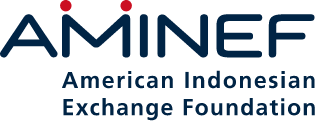The government is keeping close contact with Indonesian students at Harvard University and offering them consular assistance following a now-suspended revocation of the university’s rights to enroll foreign students by the administration of United States President Donald Trump.
The future of international students at Harvard has been cast into doubt after US Homeland Security Secretary Kristi Noem revoked last Thursday the university’s ability to enroll foreign students, who make up over a quarter of its student body.

The revocation came after she had threatened last month to block international students at the school, unless Harvard turned over records on visa holders’ “illegal and violent activities”.
But Harvard immediately sued, and US district judge Allison Burroughs ordered the halt of the policy. A court filing showed that an injunction hearing for the lawsuit is slated for Thursday, AFP reported.
The Indonesian Foreign Ministry’s citizen protection directorate said it was watching the policy’s development closely, while connecting with the 87 Indonesian students currently enrolled in Harvard.
“While waiting for the legal process by Harvard University, the Indonesian representatives in the US have established intensive communication with Indonesian students in Harvard and asked them to remain calm,” citizen protection director Judha Nugraha told The Jakarta Post on Tuesday.
He added that the Indonesian representatives were also prepared to provide consular assistance for the students.
In a statement received by the Post on Monday, the Indonesian Embassy in Washington, DC said that the students had so far been keeping calm, although they were “worried about the uncertainties of their situation”.
Some students who were scheduled to do the university’s overseas internship program had been asked by Harvard International Office to postpone their trip, the embassy said.
Several Indonesian students in Harvard declined to answer the Post’s request for comment, citing “fear of any consequences” that speaking up might cause to their status as international students at the campus.
Indonesian Students Association in the United States (Permias) president Felice Pudya asserted that all Indonesian students currently enrolling in the Massachusetts-based university still have valid status as students in the US.
“Every student is still waiting and watching how the situation unfolds while hoping for the best,” Felice told Kompas.com on Sunday. “The hope is that [the final legal ruling] sides with the students, so that they can continue with their studies.”
The Indonesian embassy had spoken with the US government and shared its “deep concern over the negative effect” the policy has on Indonesian and other foreign students, it wrote in Monday’s statement, while calling for a solution that could ensure the students’ study to continue at Harvard.
In its attempt to seek a solution for the issue, the embassy had also been coordinating with legal experts and other related parties, including the Finance Ministry-managed Endowment Fund for Education (LPDP).
One of Indonesia’s largest scholarship programs, the LPDP, has sent over a thousand Indonesian students to the US, with at least 122 of its awardees having been enrolled in Harvard as of last year.
LPDP did not immediately respond to the Post’s request for comments.
The American Indonesian Exchange Foundation (AMINEF), which administers the US-sponsored Fulbright scholarship in Indonesia, told the Post that none of its grantees were studying in Harvard this year.
Harvard, which has produced 162 Nobel prize winners, has seen hundreds of Indonesian students studying and graduating from its campus, including sitting government officials such as Coordinating Infrastructure and Regional Development Minister Agus Harimurti Yudhoyono and Second Deputy of Higher Education, Science and Technology Minister Stella Christie.
“Indonesian students in the US have made many important contributions to the advancement of education and science in the US,” Foreign Ministry’s Judha said.
On Monday, Trump vowed to win in the legal clash against Harvard and threatened to take away billions in federal funding from one of the world’s top universities, which is also the wealthiest in the US with an endowment valued at US$53.2 billion last year, as reported by AFP.
The loss of international students could prove costly to Harvard, which charges tens of thousands of dollars a year in tuition.
The White House is cracking down on US universities on several fronts, justified as a reaction to what Trump’s administration says is uncontrolled anti-Semitism and a need to reverse diversity programs aimed at addressing the historical oppression of minorities.
Last Updated: Jun 4, 2025 @ 6:41 pm




